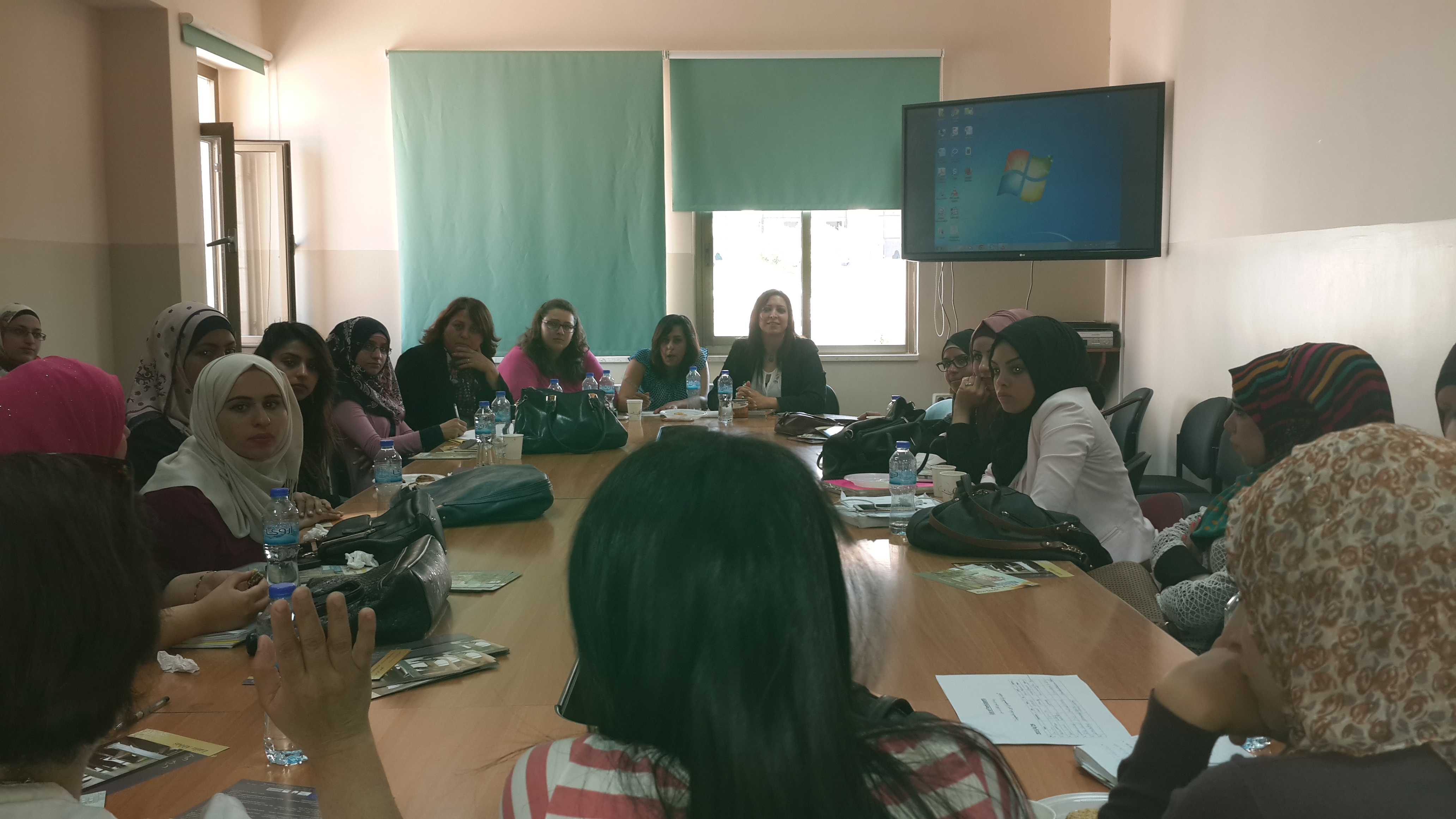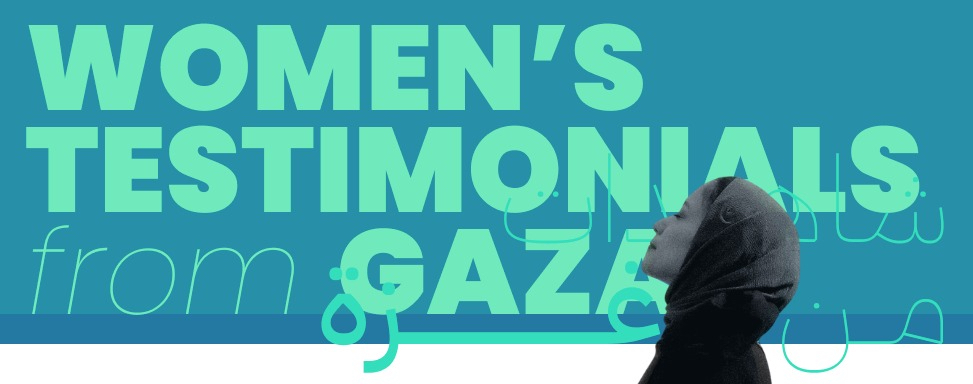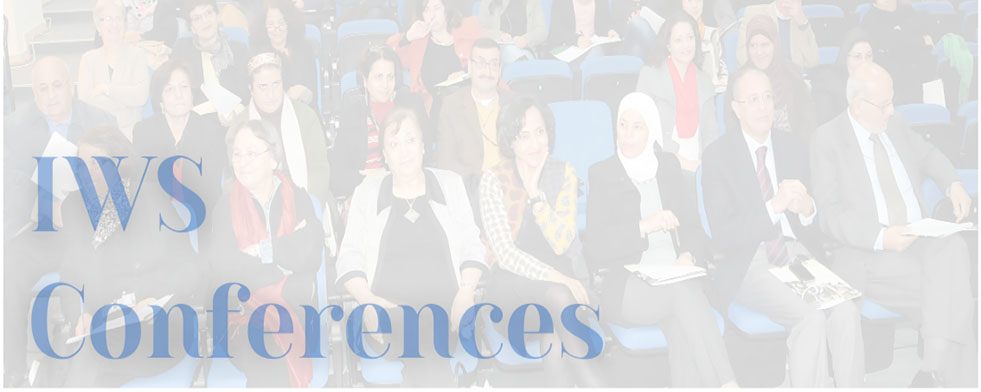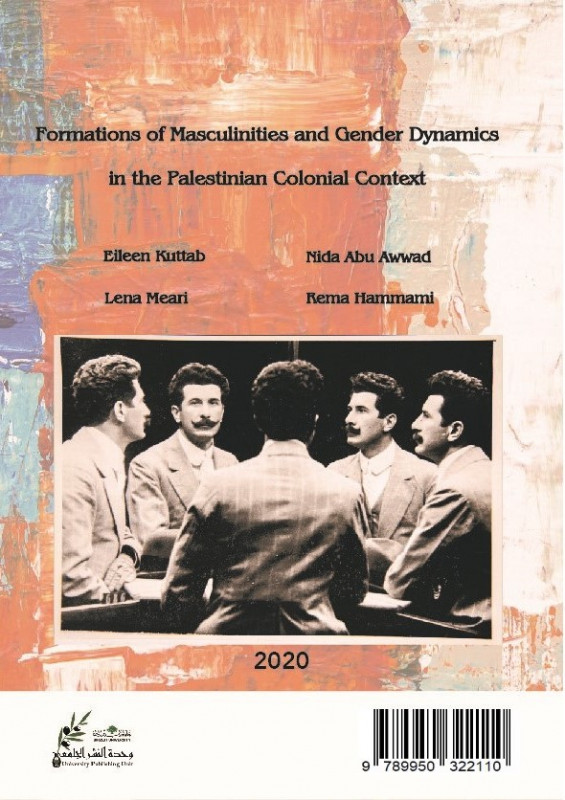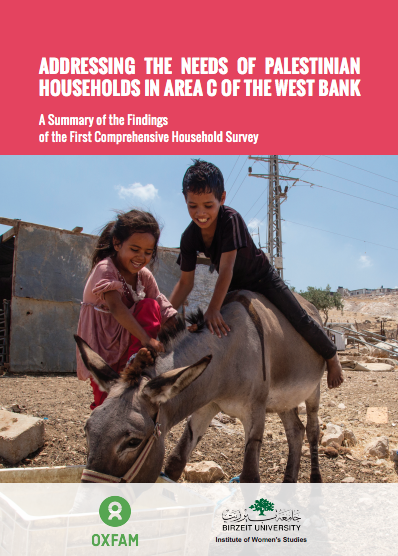On 7 May 2015, the Institute of Women’s Studies, in collaboration with the Ministry of Culture and with “Shashat,” organized a workshop on the “Challenges Palestinian women face from their perspective.” Areej Abu Eid, via skype, first spoke about her experience as a female filmmaker in the Gaza Strip, which was then followed by the screening of two films produced by young Palestinian female filmmakers.
It was a joint activity between the Ministry of Culture and Shashat (a Palestinian organization that produces films for Women directors), around 35 people attended the workshop, few from the local society organizations, but most of them were students who are enrolled in one of IWS minor courses (Women in Media), of course the workshop was of interest to them because it focuses on analyzing films produced by women directors.
Two films were presented, discussion with the directors was very important. A skype call with one of the film’s directors from Gaza was initiated (Areej Abu Eid), she along with another female director (Ala’ Disouqi) directed a film titled Manshar Ghaseelo (منشر غسيلو), the film recounts sarcastically part of the dictionary of verbal sexual abuse women are subjected to, as well as their visual rape regardless of how covered-up they are, their argument is “sexual harassment has nothing to do with how a woman is dressed”.
The other film was for the female director Laila Abbas titled “5 Cups & a Cup”, it shows that in an atmosphere filled with coffee, tension and snide remarks, a group of Palestinian feminists expose their personal and professional agendas regarding changing Palestinian Personal Status Laws. the discussion here was vital among attendees as it showed how the role of Palestinian Feminist Movement is really important in addressing women’s issues in Palestine.
These topics are part of the Palestinian society issues that are under discussion and debate among Palestinian people. The workshop comes to shed light on these issues and also enrich the minor program extra-curricular activities as well as the Master in Gender and Development program. Two of our graduate students from the Master Program were the main discussants at the workshop, both of them took a course while enrolled at our Master program titled “Formations of Self Representations: A Visual Culture and Women’s Studies Approach/ MA Level Course (GADS 638)” with Dr. Adania Shibli. This course introduced students to the complex relationships between 'gender' and 'representation' by addressing the ways in which self-perception and feminine identity are constructed, among other things, via visual representations that are circulated in the news media, films and the visual arts in general. Hence, the course can be further described as an introduction to the concept of gender representation using a Visual Culture and Cultural Studies methodology to investigate (audio) visual and other media compositions. As an outcome, four students who passed successfully this course, along with their course instructor (dr. Adania Shibli) formed a research group and worked collectively on a chapter about female Palestinian screenwriters for a book about World female screenwriters. Since then, two graduates form this group are committed to initiate activities on gender and media. One of the graduates is IWS Librarian who at the same time taught two sections for the IWS introductory course during the past Academic year, the other one is the Gender Unit Head at the Ministry of Culture who also under took the course.
The institute focuses on engaging the students in activities that should enlighten their gender awareness, as to leave an impact, at the same time engaging our graduates allows us to judge the impact of IWS and its curriculum on the society.
The workshop was the initiative of two graduates of the Institute's MA progam in Gender and Development Studies that were part of a research group formed in Adania Shibli's course in the program on visual culture and gender. The research group, under Shibli, together wrote a chapter on Palestinian screenwriters for a book on female screenwriters that was published in English.
The chapter was also published in Arabic in the Journal of Palestine Studies under the title "Shashat al-Makan” and can be accessed here: http://www.palestine-studies.org/sites/default/files/mdf-articles/134-148.pdf

